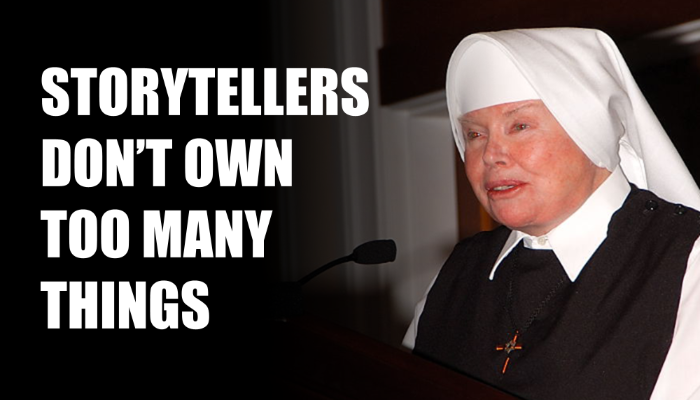
At first glance, Mary Clarke Brenner lived an ordinary American life. She got married, raised her children, and unfortunately got divorced. But that’s where her story deviates from the norm. She raised those children in Beverly Hills, California and once they were grown, she traded her plush life for becoming a nun and serving the poorest-of-the-poor, starting with those incarcerated in a La Mesa Prison in Tijuana, Mexico.
I first learned of Mother Antonia through her biography, The Prison Angel: Mother Antonia’s Journey from Beverly Hills to a Life of Service in a Mexican Jail. Reading about someone in a book is one thing, but being in her presence is another. She radiated goodness–a force that she used repeatedly to bend the impossible to her will, such as persuading the Roman Catholic Church to recognized a two-time divorcee as a nun.
My favorite story of her persuasive powers came from 1994 when she single-handedly ended a prison riot. The day started as any other day, with her leaving the prison to run some errands. She returned to find the prison on fire with armed prisoners on the inside and law enforcement plotting to retake the prison by force on the outside. Rather than waiting for that ugly situation to play itself out, she walked through the gates and into the middle of the fracas.
“Madre Antonia!” some prisoners called out, as they saw the white of her habit illuminated by the glow of the fires. They pleaded with her to leave so she wouldn’t get hurt. That’s not what the 68-year-old had in mind. Instead, she demanded that they end their nonsense by handing over their guns and returning to their cells. Powerless in the presence of this unarmed little old lady, the hardened criminals complied.
I loved listening to Mother Antonia. I mean, anyone who could end a prison riot without firing a shot obviously had wisdom worth listening to. And that’s when she shared a piece that has forever altered my viewpoint.
“Don’t own too many things,” she said, “because they eventually own you.”
She explained that if you owned a car, you needed to take care of it with fuel, insurance, car washes, and scheduled maintenance. If you owned a house, you needed to do the same things on a larger scale. She suggested that the more possessions that you own, the less time you have to spend on other things. However, if you choose to free yourself from the tyranny of possessions, you’ll have more time to devote to other, more important things.
Her concept also applies to storytelling. Beginner storytellers cram their stories with too many ideas, facts, threads, and characters. As a result, they’re forced to maintain them, which draws valuable time from serving their audiences.
The next time you work on a story, think about Mother Antonia’s cell at La Mesa Prison. She considered anything more than a cot, blanket, and pillow as extraneous. Your job as a storyteller is to introduce only the essentials required to tell your story. By limiting these story “possessions,” you’ll free more time to devote your audience.
Don’t own too many things. Because they’ll eventually own you.
Photo Credit: Jim Jeter (Used with Permission)